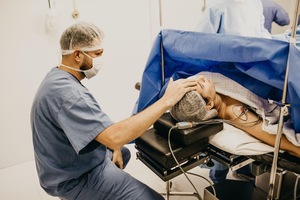Introduction
Navigating the aftermath of a medical malpractice incident can be daunting. Among the various legal processes you might encounter, depositions often take center stage. But what exactly happens during a deposition? This guide aims to demystify the deposition process for victims of medical malpractice, providing clarity and understanding to help you feel more prepared and confident as you pursue justice.
What Happens During a Deposition? A Guide for MedMal Victims


A deposition is a crucial part of the discovery phase in a legal case, particularly in medical malpractice (med mal) lawsuits. Depositions involve sworn testimony from witnesses or parties involved in the case, and they are conducted outside of court. Understanding what happens during this process can significantly impact your experience and outcomes.
Understanding the Basics of a Deposition
What is a Deposition?
A deposition is essentially an out-of-court testimony given under oath. It allows attorneys to gather information, assess the strengths and weaknesses of their cases, and prepare for trial.
Why Are Depositions Important?
Depositions serve multiple purposes:
- Fact-Finding: They help uncover facts that may not be apparent through documents alone. Witness Preparation: They give lawyers insight into how witnesses may perform in front of a jury. Case Strategy: They allow attorneys to strategize based on witness responses.
The Role of Medical Malpractice Lawyers
How Can a Medical Malpractice Lawyer Help?
If you're navigating a medical malpractice claim, hiring an experienced attorney is essential. Los Angeles medical malpractice lawyers have specialized knowledge about depositions and can guide you through the process.
Preparation with Your Lawyer
Before your deposition, your lawyer will help you prepare by:
- Reviewing potential questions Discussing strategies on how to answer Reassuring you about the process
Setting Up the Deposition
Where Does a Deposition Take Place?
Depositions usually occur in an attorney's office rather than in a courtroom setting. This informal environment can help reduce anxiety.
Who Will Be Present?
Typically, you'll find:
- The witness (you) Your attorney The opposing attorney A court reporter who transcribes everything said
The Logistics: What Happens During the Deposition?
How Long Does a Deposition Last?
While some depositions may conclude within an hour, others can extend for several hours or even days depending on complexity.
What Happens First?
At the start of your deposition, you'll be asked to take an oath affirming that you https://jsbin.com/newowezita will tell the truth. This formalizes the proceedings and underscores their seriousness.
Questioning: What to Expect During Your Deposition
Types of Questions Asked
Expect questions that cover various aspects:
- Background information Details about the incident Medical history related to your claim
How Should You Answer?
Always answer honestly and succinctly. If you don't understand a question, it's perfectly fine to ask for clarification before responding.
Handling Difficult Questions During Depositions
What If I Don't Know an Answer?
If you're unsure about something, simply say so! It's better to admit lack of knowledge than to guess.
Dealing with Aggressive Questioning Techniques
Sometimes opposing counsel might employ aggressive questioning techniques. Stay calm; if it becomes overwhelming, signal your lawyer for assistance.
After the Deposition: What Comes Next?
Reviewing Transcripts Post-Deposition
Once your deposition concludes, it's essential to review transcripts with your attorney. This helps identify any discrepancies or areas that may require clarification later on.
The Impact on Your Case
Your deposition can significantly influence your case’s trajectory—positive or negative—based on how effectively you convey your story.
Common Myths About Depositions Debunked
Myth: Depositions are just like courtroom testimony.- Reality: Depositions are less formal but still carry legal weight.
- Reality: You have options; consult your lawyer if unsure about answering.
- Reality: Lying under oath is perjury and has severe consequences.
- Reality: Both parties can be deposed as part of evidence gathering.
Key Takeaways from Your Deposition Experience
Preparation is essential – work closely with your lawyer. Remain calm and honest throughout. Understand that depositions can shape case outcomes significantly. Familiarize yourself with common myths surrounding depositions.FAQs About Depositions for MedMal Victims
1. What should I wear to my deposition?
Dress professionally but comfortably; business casual attire is usually appropriate.
2. Can I bring someone with me?
Yes! You may bring family or friends for emotional support but check with your attorney beforehand.
3. Will my deposition be recorded?
Yes, depositions are typically recorded by court reporters for accuracy in documentation.
4. How do I prepare mentally for my deposition?
Practice answering potential questions with your attorney and visualize success!
5. Can I refuse to answer certain questions?
You might refuse if it’s irrelevant or violates privilege; consult with your lawyer first!
6. How long after my deposition will I know what happens next?
Typically within weeks as both sides analyze testimonies before moving forward legally.
Conclusion
Understanding what happens during a deposition is crucial for any victim navigating through medical malpractice claims. From preparation with experienced Los Angeles medical malpractice lawyers to dealing with difficult questions during questioning sessions—being informed empowers you throughout this journey toward justice and recovery.

Feeling nervous is entirely normal, but remember that preparation goes hand-in-hand with confidence! Keep asking questions and seeking guidance until you're fully ready for this pivotal moment in your case!